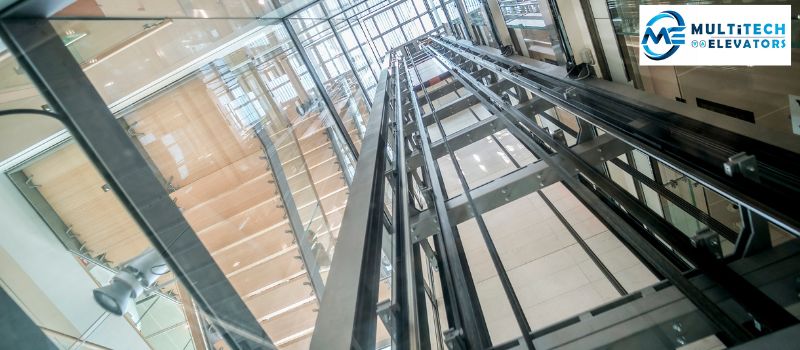Elevators are an integral part of modern buildings, enabling people to move quickly and efficiently between floors. From residential apartments to high-rise office buildings, elevators provide convenience, accessibility, and comfort. Despite their importance, it’s easy for minor issues with elevators to be overlooked. However, ignoring small repairs can lead to more serious problems down the road. Keeping up with minor elevator repairs is not only a matter of convenience but also one of safety, efficiency, and cost-effectiveness.
1. Safety Comes First
Elevator safety is paramount. When people step into an elevator, they expect it to transport them safely from one floor to another. Minor issues, such as unusual noises, slightly jerky movements, or small delays in door opening, can signal underlying problems. If left unaddressed, these minor issues may escalate into major safety hazards. For example, a malfunctioning door sensor might not detect passengers correctly, leading to accidents.
Regularly maintaining and repairing even the smallest components of an elevator can prevent accidents. A proactive approach to minor elevator repairs ensures that the system functions optimally, minimizing risks of injury or entrapment. It is far better to address a small issue, like a misaligned door or a strange vibration, than to wait for it to become a safety threat.
2. Cost-Efficiency
One of the most compelling reasons to keep up with minor elevator repairs is cost savings. Regular maintenance and small repairs are much less expensive than major overhauls or complete replacements. Ignoring a small problem today can lead to much more significant expenses later. For example, an unusual noise coming from the elevator motor might indicate a part that is wearing out. Fixing this early could be relatively inexpensive, but if left unaddressed, it might lead to motor failure, requiring a costly replacement.
Furthermore, frequent breakdowns and service interruptions can result in operational costs, especially in commercial buildings where elevators are essential for business continuity. Downtime due to neglected repairs can disrupt the daily flow of people and goods, leading to potential losses.
3. Improved Longevity
Just like any other mechanical system, elevators have a finite lifespan. However, their lifespan can be extended significantly with proper care and maintenance. Minor repairs help prevent the need for large-scale repairs or early replacement. Regular maintenance helps detect wear and tear early, allowing building managers to address these issues before they escalate.
Elevators are complex systems with numerous components, including motors, pulleys, cables, and electronic control systems. If even one component begins to malfunction, it can cause additional strain on other parts of the elevator system. By addressing minor issues promptly, building owners can extend the life of their elevator systems, maximizing their return on investment.
4. Enhancing User Experience
A smoothly functioning elevator enhances the experience for everyone who uses it. Minor issues, such as slight delays, unusual noises, or jerky movements, can detract from the overall experience. Passengers may feel discomfort or uncertainty about the elevator’s safety, leading to complaints or reduced satisfaction with the building’s amenities.
In residential buildings, a poorly functioning elevator can lead to frustration among tenants, especially those who rely on it for mobility, such as the elderly or people with disabilities. In commercial settings, a malfunctioning elevator can inconvenience employees and clients, potentially impacting business operations.
Keeping up with minor repairs ensures that elevators remain reliable, smooth, and comfortable. This improves the overall perception of the building and contributes to the satisfaction of its users.
5. Preventing Larger Problems
Minor elevator issues are often early warning signs of more significant problems. Addressing these small repairs promptly can prevent larger, more complex issues from arising. For example, a slight misalignment of elevator doors might seem inconsequential at first. However, if left unchecked, it could cause significant damage to the door mechanism, leading to more extensive and expensive repairs.
Regular maintenance checks and prompt repairs allow technicians to identify potential problems before they become major failures. This proactive approach reduces the likelihood of unexpected breakdowns, which can be highly disruptive, particularly in high-traffic buildings like hospitals, shopping malls, or office towers.
6. Regulatory Compliance
Elevators are subject to strict safety regulations and codes, which vary depending on the location and type of building. These regulations often require regular inspections and maintenance to ensure the elevator meets safety standards. Failing to keep up with minor repairs can result in non-compliance with these regulations, leading to fines, legal liabilities, or even the temporary shutdown of the elevator.
By addressing minor issues promptly, building managers can ensure that their elevator systems remain compliant with local regulations. This not only keeps the elevator operational but also protects the building owner from potential legal issues.
7. Energy Efficiency
Elevators consume a significant amount of energy, especially in high-rise buildings where they are in constant use. Minor malfunctions can lead to inefficiencies in the system, causing the elevator to use more energy than necessary. For example, a worn-out motor or faulty control system can lead to uneven acceleration, causing the elevator to work harder and use more power.
By keeping up with minor repairs, building owners can ensure that their elevators operate as efficiently as possible. This not only reduces energy costs but also contributes to a building’s overall sustainability goals.
8. Maintaining Property Value
The condition of an elevator can have a direct impact on the overall value of a property. Buildings with well-maintained, efficient, and reliable elevator systems are more attractive to tenants, buyers, or investors. Conversely, a poorly maintained elevator can detract from the property’s appeal, lowering its market value.
For residential buildings, a malfunctioning or outdated elevator system can lead to tenant dissatisfaction and potential vacancies. In commercial properties, it can negatively impact the building’s reputation and desirability. Regular maintenance and minor repairs help preserve the value of the property by ensuring that the elevator system remains in good working condition.
9. Minimizing Downtime
Elevators are critical for the daily operations of many buildings. Unplanned downtime due to elevator malfunctions can cause significant disruptions, particularly in buildings with high foot traffic. For example, in a hospital, a malfunctioning elevator can delay the transportation of patients or medical supplies. In a shopping mall, elevator downtime can inconvenience customers and potentially lead to lost business.
By addressing minor repairs early, building managers can minimize the risk of unexpected breakdowns and reduce elevator downtime. This ensures that the elevator remains operational when it is needed most, contributing to the smooth functioning of the building.
10. Building a Culture of Maintenance
Fostering a culture of regular maintenance, where minor repairs are addressed promptly, can have long-term benefits for building management. When small issues are consistently dealt with, it becomes easier to manage the overall health of the elevator system. Building owners and managers who prioritize regular elevator maintenance are likely to experience fewer emergencies, lower repair costs, and a longer-lasting system.
Establishing a routine of preventive maintenance also helps build strong relationships with service technicians, who can provide expert insights into the condition of the elevator. These relationships can be invaluable when it comes to addressing more significant repairs or upgrades in the future.
Conclusion
Keeping up with minor elevator repairs is essential for ensuring safety, enhancing user experience, saving costs, and maintaining the value of a building. It prevents small issues from escalating into major problems, reduces the risk of accidents, and helps extend the lifespan of the elevator system. Learn More



